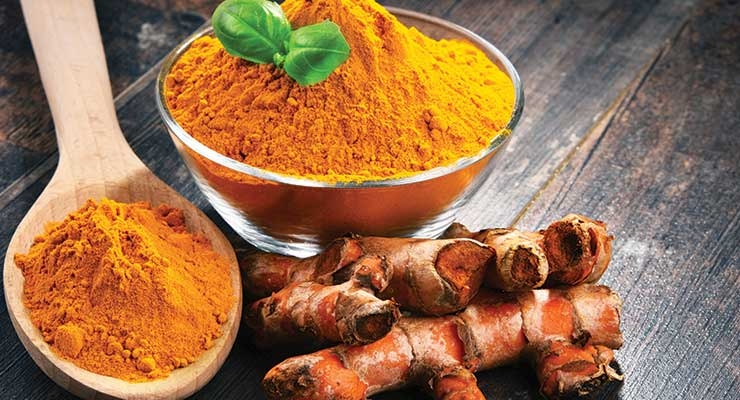04.29.22
Ingredient supplier Indena’s curcumin ingredient, a curcumin ingredient marketed as Meriva, was shown in a recent study to modulate oxidative stress in such a way that benefits the kidney’s detoxing and filtering functions.
The pilot human clinical trial involved 24 chronic kidney disease (CKD) patients, along with 20 healthy participants. CKD is an inflammatory-based disorder, and t causes a progressive loss of renal function, and is a leading risk factor for developing cardiovascular diseases. The authors hypothesized that the ingredient’s antioxidant activities may translate to benefits in CKD patients. Previous research conducted by a team at the University of Chieti-Pescara found that in patients with temporary kidney dysfunction, Meriva supplementation decreased albuminuria in all subjects. Albuminuria, a reliable marker of kidney disease, involves abnormally high levels of the protein albumin in urine.
The research, which was conducted by a team at the University of Milan, provided the CKD subjects with nutritional counseling, and daily supplementation with Meriva for six months. Between three and six months, the researchers measured uremic toxins, metagenomic of the gut microbiota, and nutritional, inflammatory, and oxidative status.
While supplementation did not result in significant changes to the uremic toxins investigated, it was found that curcumin significantly levelled plasma pro-inflammatory mediators and lipid peroxidation. Additionally, the CKD subjects achieved a more balanced composition of the intestinal microbial population, based on comparison to healthy volunteers who were used as a control group. Uremic toxins did not increase in the supplemented group, supporting the stability that was observed on the clinical parameters of the enrolled CKD population. This provided evidence that there is a good safety profile of curcumin after long-term administration.
“One of our most important and historical ingredients keeps being the source of new potential applications in wider fields, as important studies show,” Antonella Riva, Indena’s head of product innovation and development, said. “We’re very proud that Meriva can still help researchers find natural solutions for conditions where response on oxidative stress is involved, such as kidney [disorders]. We’ll keep collaborating with relevant research centers to work for human well-being, which is part of our mission.”
Meriva has been examined in over 35 clinical trials, involving more than 2,000 participants, for a variety of health applications including sports nutrition, joint health, antioxidant activity, and more, according to the company. It is formulated to contain the full range of curcuminoids, not just curcumin.
The pilot human clinical trial involved 24 chronic kidney disease (CKD) patients, along with 20 healthy participants. CKD is an inflammatory-based disorder, and t causes a progressive loss of renal function, and is a leading risk factor for developing cardiovascular diseases. The authors hypothesized that the ingredient’s antioxidant activities may translate to benefits in CKD patients. Previous research conducted by a team at the University of Chieti-Pescara found that in patients with temporary kidney dysfunction, Meriva supplementation decreased albuminuria in all subjects. Albuminuria, a reliable marker of kidney disease, involves abnormally high levels of the protein albumin in urine.
The research, which was conducted by a team at the University of Milan, provided the CKD subjects with nutritional counseling, and daily supplementation with Meriva for six months. Between three and six months, the researchers measured uremic toxins, metagenomic of the gut microbiota, and nutritional, inflammatory, and oxidative status.
While supplementation did not result in significant changes to the uremic toxins investigated, it was found that curcumin significantly levelled plasma pro-inflammatory mediators and lipid peroxidation. Additionally, the CKD subjects achieved a more balanced composition of the intestinal microbial population, based on comparison to healthy volunteers who were used as a control group. Uremic toxins did not increase in the supplemented group, supporting the stability that was observed on the clinical parameters of the enrolled CKD population. This provided evidence that there is a good safety profile of curcumin after long-term administration.
“One of our most important and historical ingredients keeps being the source of new potential applications in wider fields, as important studies show,” Antonella Riva, Indena’s head of product innovation and development, said. “We’re very proud that Meriva can still help researchers find natural solutions for conditions where response on oxidative stress is involved, such as kidney [disorders]. We’ll keep collaborating with relevant research centers to work for human well-being, which is part of our mission.”
Meriva has been examined in over 35 clinical trials, involving more than 2,000 participants, for a variety of health applications including sports nutrition, joint health, antioxidant activity, and more, according to the company. It is formulated to contain the full range of curcuminoids, not just curcumin.




























